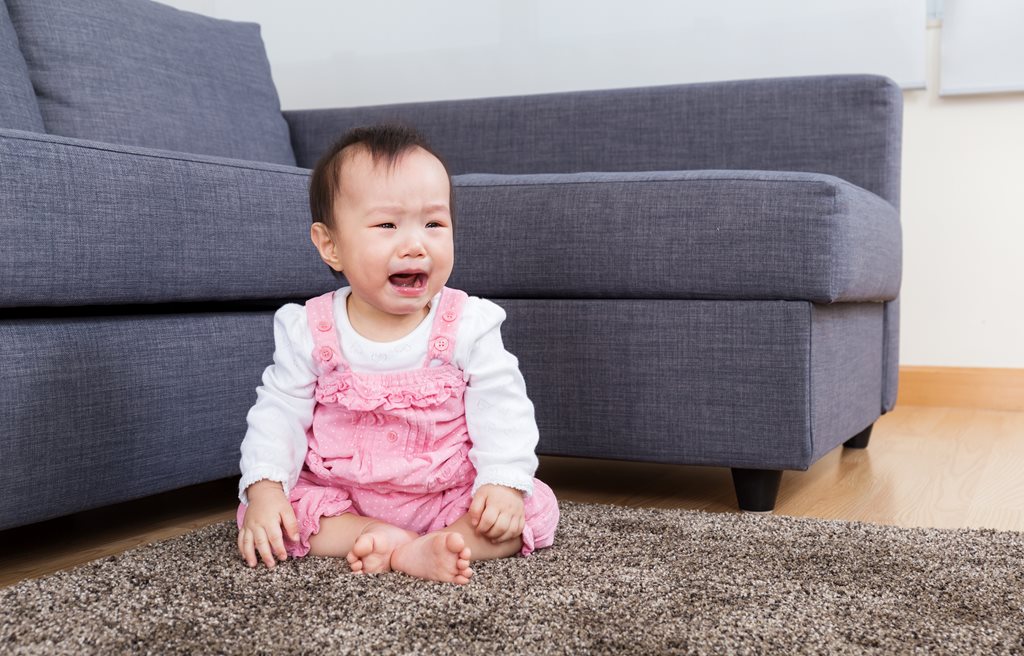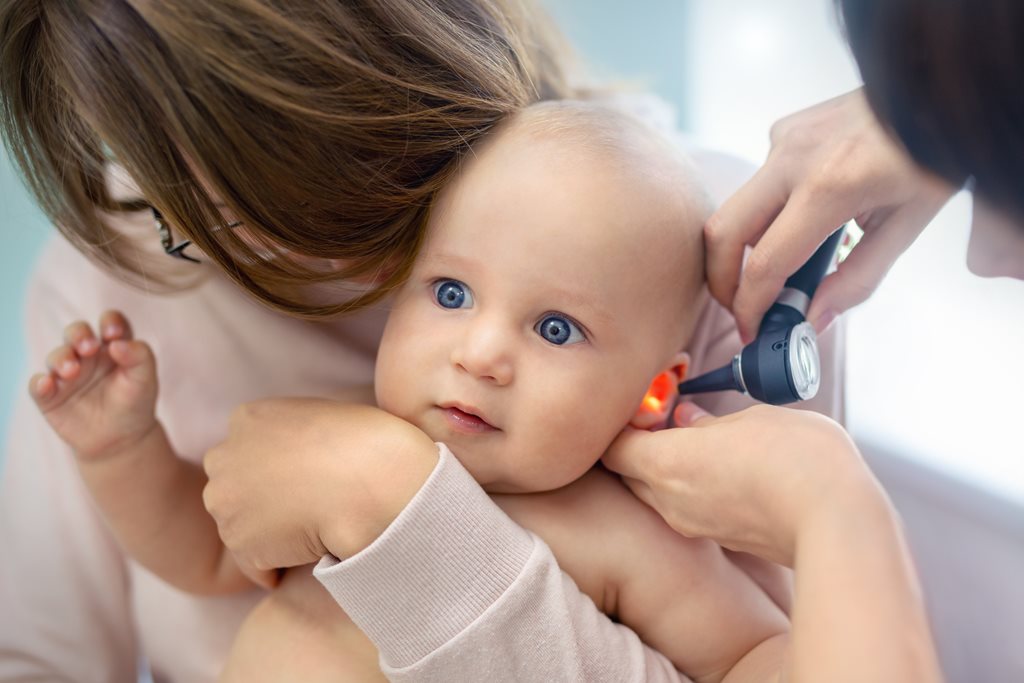Earaches
Does your little one seem to be tugging on an ear a lot? Is he or she fussy or crying more than usual? Are you noticing a decreased appetite? All of these symptoms could indicate that your child has an ear infection.
 It is extremely common for children to develop an infection in their middle ear. This kind of infection is called acute otitis media. It is the most common reason for trips to the pediatrician and the primary cause of ear pain in babies, but older children frequently experience earaches, as well.
It is extremely common for children to develop an infection in their middle ear. This kind of infection is called acute otitis media. It is the most common reason for trips to the pediatrician and the primary cause of ear pain in babies, but older children frequently experience earaches, as well.
Symptoms of an ear infection can include:
- Pulling at one or both ears
- Fluid leaking from the ear
- Lack of responsiveness may indicate their hearing isn’t as sharp as usual
- Crying more than usual
- Fussy or fretful
- Not sleeping well
- Fever of 100 F (37.8 C) or higher
- Runny nose or nasal congestion
- May display a lack of balance
Most common causes of earache
Other infection
If your child has a sore throat or another type of bacterial infection, the germs causing it can spread to the middle ear and cause an infection there as well. If your baby has an upper respiratory infection, this can lead to stuffiness and swelling in the ear. As the tissue around the eardrum swells, fluid can build up, and an ear infection can result.

Eustachian tube dysfunction
The tube between your throat and middle ear is called the eustachian tube. Your child’s eustachian tube is much smaller and less angled than that of an adult, which makes it harder for fluid to drain. It is very common for colds and other viral infections to cause swelling and/or congestion. If your child’s eustachian tube is swollen or clogged with mucus, the resulting pressure buildup can trigger ear pain.
Swimmer’s Ear

Otitis external, frequently referred to as swimmer’s ear, is a bacterial infection. It differs from acute otitis media and is usually a result of water remaining in the outer ear canal for an extended period of time. This creates a moist environment ideal for the growth of bacteria. While a person of any age can develop swimmer’s ear, it is seen most often in children.
Earache treatment
Ear infections often clear up on their own without antibiotics. Most infections are caused by viruses, so antibiotics are not effective. Call Entirely Kids Pediatrics for an appointment if your child is younger than 6 months and you suspect an ear infection. If your child is older than 6 months, Dr. Leung may recommend the following:
- Over-the-counter infant pain relievers
- Saline drops or spray to reduce swelling and congestion
- Use of a humidifier
If the discomfort does not ease in a couple of days, Dr. Leung may prescribe a course of antibiotics if it appears that your child may have an infection due to bacteria. It is important to finish all the medicine even after your child improves. Otherwise, the infection can return quickly. If the blocked ear doesn’t open up, or if your child experiences frequent ear infections, Dr. Leung may suggest putting in small ear tubes to promote drainage and help prevent further infections.
When to call our office
- Your child’s ear pain seems moderate to severe
- Symptoms don’t go away after 1-2 days
- Your child has a fever
- Your baby remains restless and/or irritable after getting over a cold or other respiratory illness
- Fluid, pus, or bloody discharge drains from the ear
- Your baby has a decreased appetite
Less-common causes of earache
Occasionally, little ones can insert a foreign object in the ear, which can cause pain (not to mention, distress for the parent!). Please call our office immediately for an appointment. Do not attempt to retrieve the object yourself. Also, build-up of ear wax can block the ear canal and result in soreness of the ear.
In rare instances, the cause of the earache can be a burst eardrum. This can result from a cotton swab being inserted too far into the ear canal or from an accident of some sort. If the earache is caused by a burst eardrum, the eardrum will generally heal on its own without intervention, but it is best to have Dr. Leung check your child over to avoid any complications.
